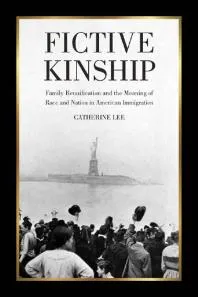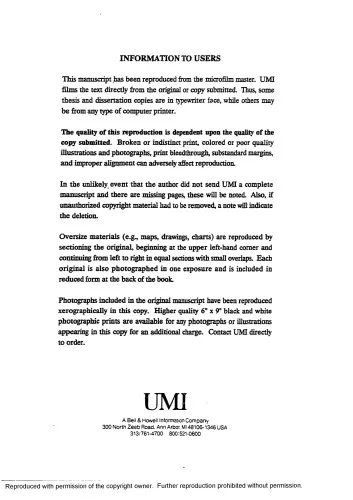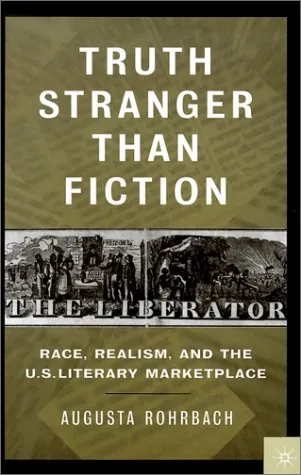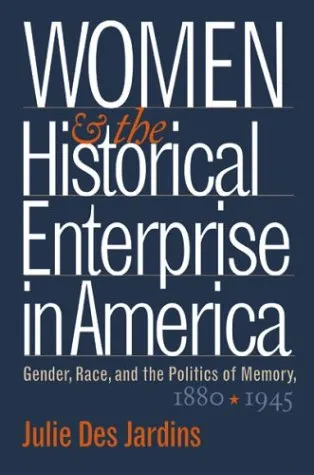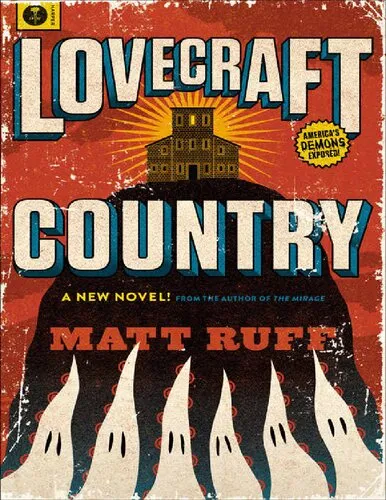Fictive Kinship : Family Reunification and the Meaning of Race and Nation in American Immigration
4.7
بر اساس نظر کاربران

شما میتونید سوالاتتون در باره کتاب رو از هوش مصنوعیش بعد از ورود بپرسید
هر دانلود یا پرسش از هوش مصنوعی 2 امتیاز لازم دارد، برای بدست آوردن امتیاز رایگان، به صفحه ی راهنمای امتیازات سر بزنید و یک سری کار ارزشمند انجام بدینکتاب های مرتبط:
کتاب 'Fictive Kinship : Family Reunification and the Meaning of Race and Nation in American Immigration' نوشته کاترین لی، تحلیل جامع و عمیقی از روابط خویشاوندی و تأثیر نژاد و ملت در فرآیند مهاجرت به ایالات متحده ارائه میدهد. این اثر به بررسی سیستم پیچیده و سیاستهای ادغام خانواده در مهاجرتهای آمریکایی میپردازد و نشان میدهد چگونه این سیاستها با مفاهیم نژاد و ملت تعامل دارند.
خلاصهای از کتاب
کتاب 'Fictive Kinship' به تحلیل سیاستهای مهاجرتی ایالات متحده، به ویژه در زمینه پیوند خانوادگی، میپردازد و نشان میدهد چگونه این سیاستها نماد نژاد و هویت ملی هستند. کاترین لی با استفاده از مطالعههای تاریخی، دادههای آماری، و تحقیقات میدانی به بررسی عمیق میپردازد. او نشان میدهد که چگونه سیاستهای مهاجرتی نه تنها توسط سیاست و اقتصاد بلکه توسط ساختارهای اجتماعی و فرهنگی نفوذ یافتهاند.
نکات کلیدی
- تأثیر نژاد و هویت ملی در سیاستهای مهاجرتی
- نقش پیوند خانوادگی در فرآیند مهاجرت
- تاریخچه و تغییرات سیستم مهاجرتی آمریکا
- تشریح مفهوم 'خویشاوندی ساختگی' و کاربرد آن در سیاست
نقلقولهای معروف از کتاب
"خویشاوندی ساختگی، فراخوانی برای برقراری پیوندهای جدید در یک نظام جهانی متغیر است."
"درسهایی که از سیاستهای مهاجرتی گذشته میگیریم، میتواند راهنمایی برای آیندهی بهتر و انسانیتر باشد."
چرا این کتاب مهم است؟
کتاب کاترین لی به عنوان یک تحلیل عمیق و دقیق از سیاستهای مهاجرتی ایالات متحده، اهمیت زیادی در درک نگرشهای موجود در باره نژاد و ملت دارد. این کتاب با فراهم کردن بینشی نوین به سیاستهای مهاجرتی، نقطه شروعی برای بحثهای آینده درباره عدالت اجتماعی، هویت و تغییرات فرهنگی است. پژوهشهای نویسنده و دادههای ارائه شده، نه تنها برای پژوهشگران، بلکه برای سیاستگذاران و تمامی افرادی که به دنبال درک بهتر از روندهای بینالمللی مهاجرتی هستند، مفید است.
Welcome to an in-depth exploration of the intersection between family, race, and immigration in the United States. In "Fictive Kinship: Family Reunification and the Meaning of Race and Nation in American Immigration," we delve into how these elements shape policies, societal norms, and individual experiences. This book offers a comprehensive analysis of family reunification policies, examining their implications for racial and national identity.
Detailed Summary of the Book
"Fictive Kinship" unravels the complex fabric of American immigration policy, focusing particularly on the concept of family reunification. This policy has long been championed as a cornerstone of U.S. immigration law, maintaining the belief that keeping families together is both humane and beneficial for societal stability. However, as the book reveals, the family-based immigration system is deeply intertwined with issues of race and nationality.
The book argues that American immigration policy has historically been shaped by racial biases that continue to affect the application of family reunification. Through rigorous analysis, it exposes how laws have favored certain racial and national groups over others, often marginalizing non-European immigrants. This selective deportation and immigration practice underscore a prevalent societal norm that some families are more "desirable" or "legitimate" than others.
By exploring case studies, historical contexts, and personal stories, "Fictive Kinship" paints a vivid picture of how these policies are enacted and challenged over time. The book also discusses how the notion of "fictive kinship"—family ties that run deeper than blood relations—guides these practices, shaping the way we perceive family and nationhood.
Key Takeaways
- Family reunification policies, while appearing neutral, are deeply affected by historical and contemporary racial considerations.
- U.S. immigration laws have systematically favored immigrants from certain racial and national backgrounds.
- The idea of "fictive kinship" plays a crucial role in how national and racial identities are constructed and understood.
- Immigration debates often revolve around whom we consider family, revealing deeper societal biases and preferences.
- "Fictive Kinship" emphasizes the importance of historical context in understanding current immigration laws and policies.
Famous Quotes from the Book
"The concept of family unification has never been merely about blood ties; it is a reflection of who we as a nation are willing to embrace and who we choose to exclude."
"To understand American immigration policy, we must delve into the histories of race and power that have shaped it."
Why This Book Matters
"Fictive Kinship" offers critical insights into the socio-political mechanisms that inform immigration policies in the U.S., opening a dialogue on inclusivity and bias. As debates on immigration become increasingly polarized, this book provides valuable context, focusing on the idea that family notions extend beyond nuclear ties and can represent broader, more inclusive forms of kinship.
By critically examining the linchpins of immigration policy, the book not only informs scholars, policymakers, and advocates but also addresses every reader who wishes to comprehend the complexities surrounding modern-day immigration. In doing so, it encourages readers to rethink not just policies but the foundational values of race, nationality, and community.
دانلود رایگان مستقیم
شما میتونید سوالاتتون در باره کتاب رو از هوش مصنوعیش بعد از ورود بپرسید
دسترسی به کتابها از طریق پلتفرمهای قانونی و کتابخانههای عمومی نه تنها از حقوق نویسندگان و ناشران حمایت میکند، بلکه به پایداری فرهنگ کتابخوانی نیز کمک میرساند. پیش از دانلود، لحظهای به بررسی این گزینهها فکر کنید.
این کتاب رو در پلتفرم های دیگه ببینید
WorldCat به شما کمک میکنه تا کتاب ها رو در کتابخانه های سراسر دنیا پیدا کنید
امتیازها، نظرات تخصصی و صحبت ها درباره کتاب را در Goodreads ببینید
کتابهای کمیاب یا دست دوم را در AbeBooks پیدا کنید و بخرید
1482
بازدید4.7
امتیاز0
نظر98%
رضایتنظرات:
4.7
بر اساس 0 نظر کاربران
Questions & Answers
Ask questions about this book or help others by answering
No questions yet. Be the first to ask!
